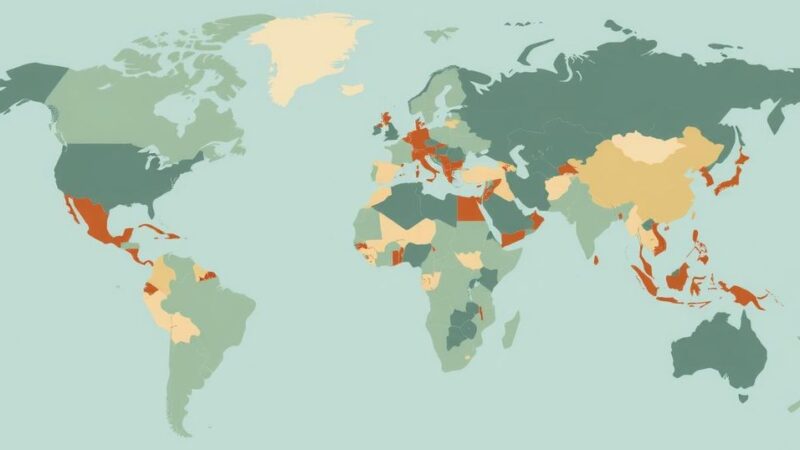The EU pledges €2.5 billion for Syrian recovery, contingent on stable governance. This follows violent outbreaks, emphasizing the fragile situation in Syria. The EU aims to facilitate inclusive transitions and has begun easing sanctions to promote reconstruction efforts.
The European Union (EU) has reaffirmed its commitment to support the Syrian population, pledging nearly €2.5 billion to assist both displaced Syrians abroad and those still within Syria over the next two years. This support aims to aid economic recovery in Syria amid ongoing instability following a recent resurgence of violence. EU Commission President Ursula von der Leyen emphasized the necessity of a credible and inclusive transition for any investments to progress successfully.
The latest announcement coincided with an annual donor conference, marking a significant moment as Syria was represented by Foreign Minister Asaad al-Shibani. Germany’s contribution of an additional €300 million, as stated by Foreign Minister Annalena Baerbock, was also a highlight. The EU is keen on fostering necessary investments for Syria’s reconstruction, contingent on active efforts towards a new governance structure that reflects the entire society.
Von der Leyen referred to two recent noteworthy developments: the signing of a transitional constitution and an agreement with the Syrian Democratic Forces, describing them as historic milestones. However, the EU’s support surfaces against a backdrop of ongoing violence in Syria’s north-west, where gunmen linked to the current leadership reportedly executed numerous individuals, casting shadows of doubt on the current regime’s stability.
Despite this violence, EU’s chief diplomat Kaja Kallas characterized the situation as dire, stating that hope for Syria is “hanging by a thread.” The EU has also started relaxing previous sanctions on crucial sectors to facilitate Syria’s economic revival post-war. Kallas reiterated the EU’s commitment to a roadmap aimed at assisting Syria’s governance and encouraging future accountability from the leadership amid the troubling environment.
There are suggestions that the European Investment Bank could potentially finance part of the reconstruction efforts, recognizing a dire need for rebuilding after 14 years of civil conflict that has wrought extensive destruction and impeded recovery efforts.
In summary, the European Union’s renewed support for Syria includes substantial financial pledges aimed at fostering recovery amidst ongoing violence. The commitment to work with Syria’s de facto authorities hinges on the establishment of a credible and inclusive government that represents diverse societal interests. Although the rise in violence poses significant risks, the EU remains open to investment opportunities to aid in reconstruction efforts and economic recovery.
Original Source: www.euronews.com






